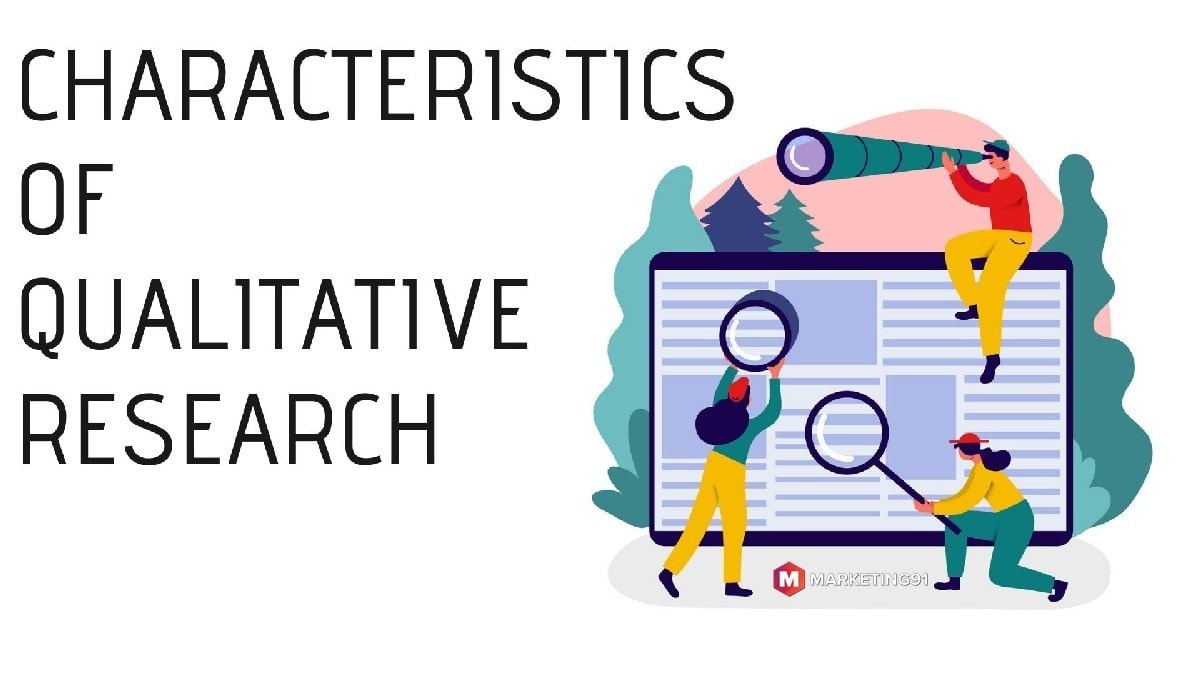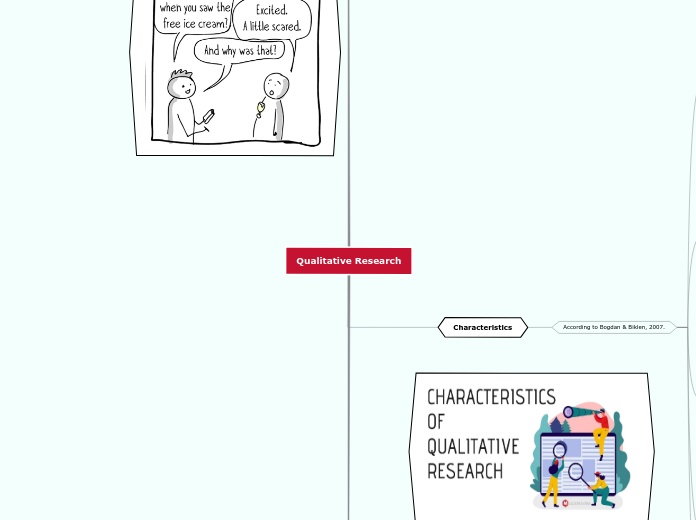Qualitative Research
Definition
John Creswell (1994)
Inquiry process of understanding that is based on distinct methodological traditions of inquiry to explore a problem.
Social
Human
In this inquiry process a qualitative research
Builds a picture
Complex
Holistic
Analyses words
Reports detailed views of informants.
Conducts the study in a natural setting.
Sharan B. Merriam (2009)
States that “Qualitative researchers are interested in understanding the meaning people have constructed.
Dr. Leslie Curry (2015)
Qualitative research is a strategy to:
Collect
Organise
Interpret information
To generate insights into phenomena that are difficult to measure quantitatively.

Characteristics
According to Bogdan & Biklen, 2007.
Naturalistic
Is defined as a no experimental approach in which subjects are studied in their natural settings.
They are observed by the researcher:
Overt observation
Covert observation
There is no manipulation of the environment.
Descriptive
The data collected take the form of words or pictures rather than numbers.
Transcrips of:
Interview
Photographs
Field notes
Videos
Personal documents
Other official records
All the datails must be considered.
Sandelowski (2000)
Noted that researches present comprehensive narratives of phenomena or events based on open-ended questions.
In-depth narrative descriptions were used in educational research.
Concern with process
Qualitative research focuses on process rather than outcomes.
The three main methods of data collection, involve more active participation by participants.
Focus group
In-depth interviews
Participant observation
Qualitative strategies suggest the participant expectations are translated into daily activities, procedures and interactions.
Inductive
That theories or concepts are built on the base of gathering data.
This approach uses a bottom-up direction to:
Understand situations
Focus on behaviours
Construct theories
Reach conclusions
Bogdan and Biklen (2007)
The qualitative researcher “constructs a picture that takes shape as he/she collects and examines the parts”.
Meaning
The key element is to capture perspectives as precise as possible.
Ethical considerations
Participants have a vital role and as explained.
So the treatment of participants becomes an ethical issue to be considered.
Codes of ethics have to be set by researches in order to protect participants and support ethical approaches to fieldwork.
Basic ethical considerations:
Avoid research sites where participants may feel coerced to participate in the research.
Honour the participants’ privacy.
Consider difference in participants’ time commitment.
Protect participants’ identities to avoid embarrassment or harm.
Treat participants with respect and seek their cooperation in the research.
Negotiate with the participants the terms of the agreement to do a study.
Tell the truth when writing up and reporting the findings.
Ethical principles can make researchers achieve the goals of a research as well as respect the participants’ rights

Amarilis Aracely Yautibug Paz





Pacientes
60% Niñas
20% Menores de 24 meses
0.60 x 0.20 = 0.12
80 % Mayores de 24 meses
0.60 x 0.80 = 0.48
40% Niños
35% Menores de 24 meses
0.40 x 0.35 = 0.14
65 % Mayores de 24 meses
0.40 x 0.65 = 0.26
